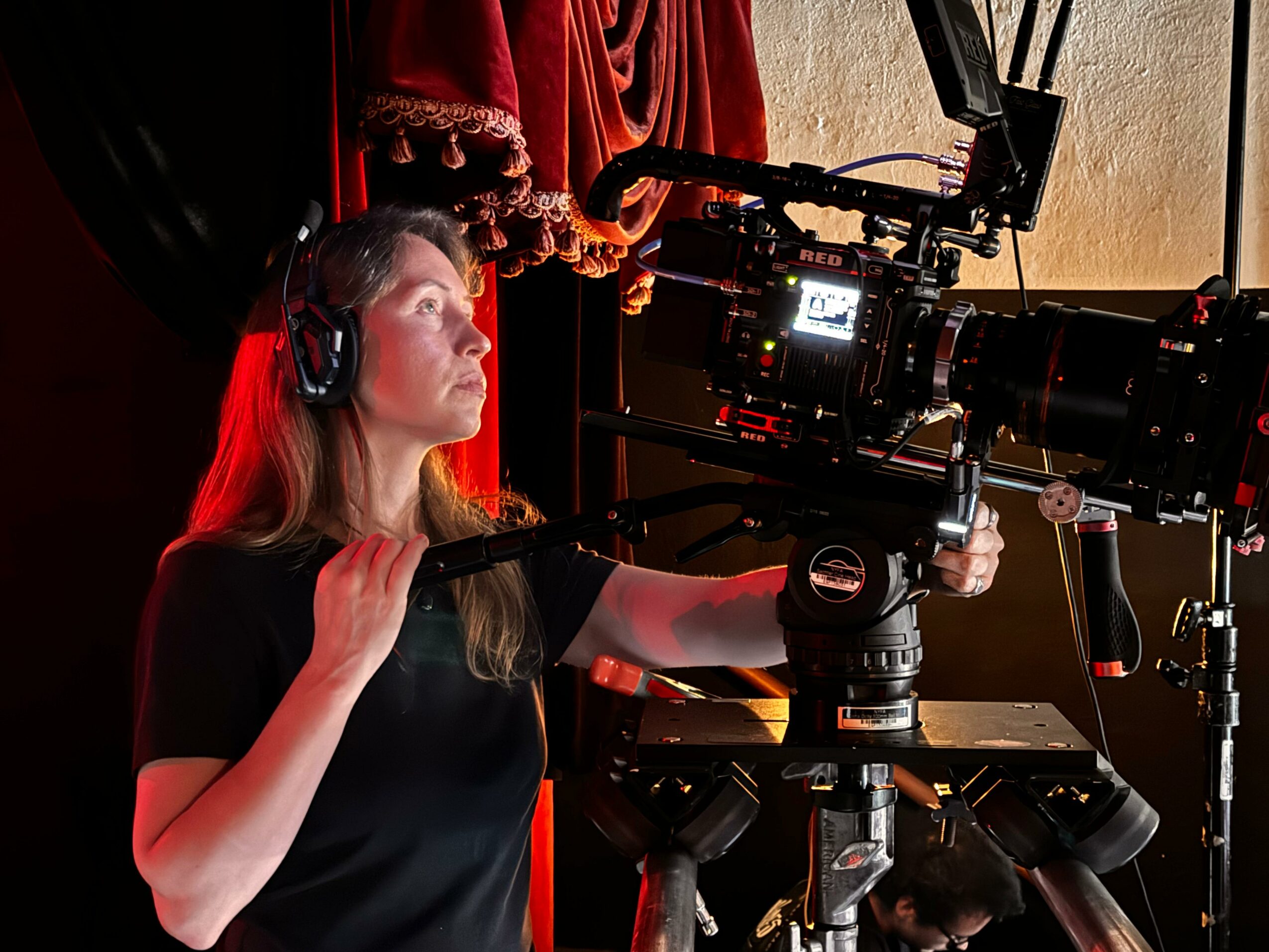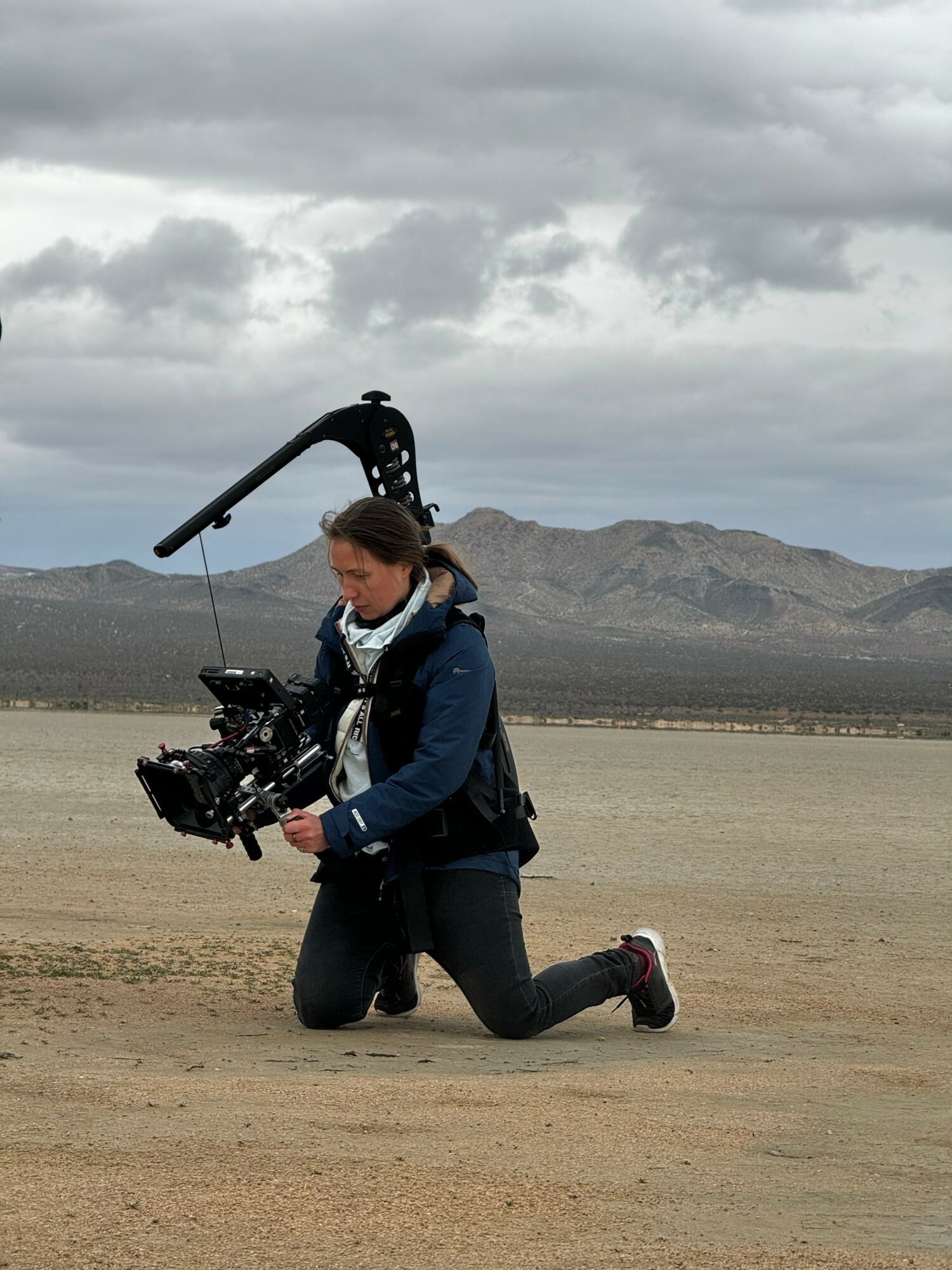

Today we’d like to introduce you to Tatyana Chistikova.
Hi Tatyana, so excited to have you on the platform. So before we get into questions about your work-life, maybe you can bring our readers up to speed on your story and how you got to where you are today?
My journey started when I won a prestigious Fulbright grant for studying at the News & Documentary program at NYU. Although it took a lot of effort to get, it was also a huge luck, because this program definitely changed my life and changed me as a person. It taught me and my pals – another twelve highly dedicated students from all over the world – how to film compelling documentaries as a one-person production band or within a team, as well as how to work as a video journalist. Upon completing it, I’ve decided to go back to Russia, where I’m from originally, and start working as a freelance video journalist, traveling all over the country and filming fascinating and important stories. It’s been one of the best periods of my life, and I’ve visited places that I would have never been able to get to before: from nomadic yurts in the Yamal Peninsula, to a bear cubs shelter in the Tver region.
After a few years of travels I’ve decided it was time to settle, and accepted a full-time position as a video journalist and producer at the NBC News Moscow bureau. We had a very small bureau of only five people, and it has also been a fascinating and challenging time. We’ve been covering the news from the country and the region during one of the most politically turbulent periods, and as there were fewer and fewer foreign media outlets left in the country, I’ve felt that my work was extremely important.
But after a while I realized that it was probably time to start pursuing my old dream, and switch from video journalism to pure cinema, diving deeper into cinematography. I believe that cinematography as an art has a great power to transform human souls through beauty and the depth of experience it might bring.
In 2023 I came to Los Angeles and did a cinematography program at NYFA, which gave me a great hands-on experience in feature cinematography. I’ve then joined numerous sets as a cameraperson, assistant camera, lighting technician or grip – deepening this experience. I’ve also got lucky to DP seven short films – ranging from comedies to a post-apocalyptic drama.
For me personally the end goal of my cinematography is to be able to transmit all the six senses through the visuals on screen. And I believe that I am extremely fortunate to work in the field that serves as an inexhaustible source of inspiration for me.
I’m sure it wasn’t obstacle-free, but would you say the journey has been fairly smooth so far?
My path to becoming a cinematographer was certainly not an easy and fast road. But the more valuable the end result is, and I am grateful for all the challenges that led me to where I am.
One of the still vivid examples is my thesis documentary project at NYU. It’s been the start of the Russo-Ukrainian War in 2014, and since I’m a quarter Ukrainian and three quarters Russian, naturally, it affected me deeply. I was in New York when it started, and I understood that this was the topic I had to do my thesis documentary on. After all, no matter how loud it might sound, it is our duty as journalists and documentary filmmakers in times like these to go to places that other people are trying to get out of.
In New York, in our prep classes, I’ve developed a plan to film a documentary about ordinary civilians caught between a rock and a hard place in this conflict. But as the summer approached, when we all had to leave the school to shoot our films alone – the truth is that I was getting more and more scared. I’ve been doing eastern martial arts for 13 years through my adolescence, and I’ve always thought I’ve learned well how to control my fears. But that was something different – at times I’ve felt panic taking me over, and at others I just didn’t know where to start.
Yet I knew I had to do that. And I’ve had amazing professors – Marcia Rock, director of our News&Doc program, and Kirsten Johnson, a remarkable documentary filmmaker – who gave me some very valuable advice on how to deal with it. In the end I went to Luhansk and successfully filmed a documentary about two sisters caught in this war. And it has certainly been one of those experiences that has profoundly changed me as a filmmaker.
Thanks for sharing that. So, maybe next you can tell us a bit more about your work?
Now that I’ve found myself as a cinematographer and am looking back at my path – I believe it is this whole vast and multilayered experience I’ve had that led me to where I am. I might have started worrying that I didn’t start with cinematography from the very beginning. But I believe it’s my combination of skills in video journalism, documentary filmmaking, and other areas – that makes me a stronger and more distinguished cinematographer (as well as it helps me overcome the day-to-day obstacles in this highly-competitive industry).
My exemplary figures are Roger Deakins and Néstor Almendros, who also came from documentary filmmaking, but were able to bring in their attention to detail and the ability to capture fleeting life miracles – into their feature cinematography. That is what I’m always aiming to do: for my cinematography to be able to move people, give them valuable experience – and ultimately maybe even bring back their love for real life. And I’m really happy that I get to call cinematography both my job and my passion.
What do you like and dislike about the city?
I think that one of the most magical things about LA is its proximity to all of the nature’s wonders. First of all it’s the ocean. I grew up very far from the sea – and for me it has always been a place of power. So whenever I get a chance here, I go to the ocean to recharge, to simply walk along the beach, look at the waves, and listen to the seagulls’ screams. I’ve been dreaming of surfing when coming here – unfortunately I still didn’t get enough time for that, but I’m seriously planning to start this year.
And then, on the other hand – there’s the desert. It’s been a huge discovery for me how in the spring, after the rainy season, it starts blooming and gets completely covered in flowers – it is an amazing sight.
And then, of course, there’re the iconic hills. I live in the Hollywood Hills – and at every opportunity I try to go out hiking. There is always an abundance of wildlife in the hills: deer, coyotes, rabbits, skunks, owls, eagles. Being in the wild right in the middle of the city allows me to reboot and find new solutions to any life problems.
In terms of the least attractive traits, the lack of developed city transport became a big surprise for me. There’s a huge cultural difference between Europe and the US in that sense, because wherever I lived in Europe, I’ve always preferred to use city transport for convenience and speed, as opposed to spending time in traffic jams, worrying where to park, etc. The Moscow subway is honestly at the level of art. It is extremely beautiful – every station is like a museum hall. It is perfectly clean. It runs every two minutes and reaches any area inside the city. When I first got on the LA metro, I was simply shocked by the striking difference. So that in the end I had to get a car – which I wasn’t aiming at at first. Yet on the other hand a car gives you a huge freedom – and thanks to that I’ve been able to visit a lot of amazing places in California. So in the end, it all worked out for the best.
Contact Info:
- Instagram: https://www.instagram.com/j.moonfire
- Facebook: https://www.facebook.com/tatyana.chistikova
- Other: https://www.imdb.com/name/nm16300653

















